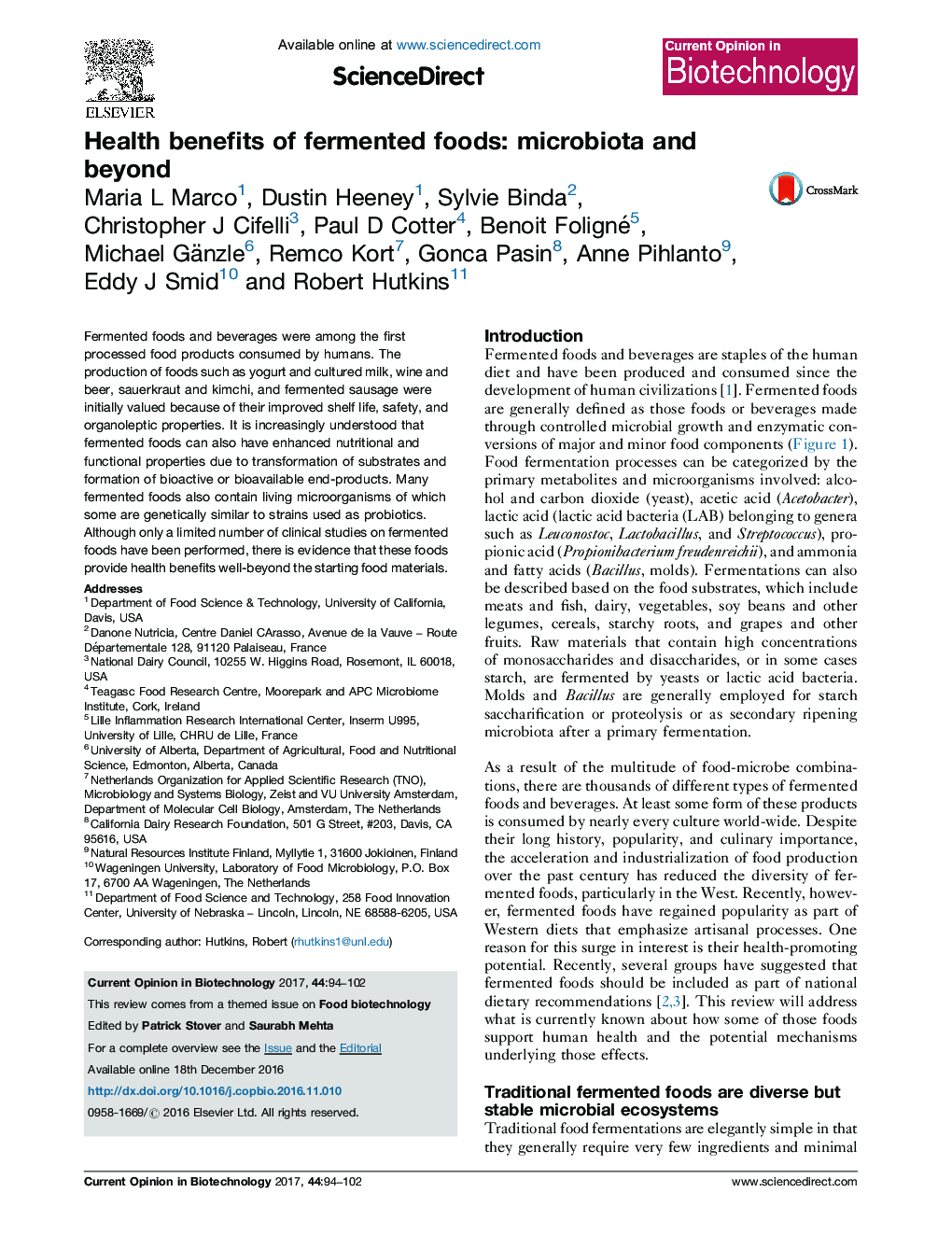| Article ID | Journal | Published Year | Pages | File Type |
|---|---|---|---|---|
| 6451545 | Current Opinion in Biotechnology | 2017 | 9 Pages |
â¢Fermentation can enhance or alter nutritive and health-modulating properties of food constituents.â¢Microbes in fermented foods introduce new compounds to the foods that are delivered to the gut.â¢Many of the species found in fermented foods are phylogenetically related to probiotic strains.â¢Fermented foods can be an important dietary source of live microorganisms.â¢Microbes in fermented foods may contribute to human health in a manner similar to probiotics.
Fermented foods and beverages were among the first processed food products consumed by humans. The production of foods such as yogurt and cultured milk, wine and beer, sauerkraut and kimchi, and fermented sausage were initially valued because of their improved shelf life, safety, and organoleptic properties. It is increasingly understood that fermented foods can also have enhanced nutritional and functional properties due to transformation of substrates and formation of bioactive or bioavailable end-products. Many fermented foods also contain living microorganisms of which some are genetically similar to strains used as probiotics. Although only a limited number of clinical studies on fermented foods have been performed, there is evidence that these foods provide health benefits well-beyond the starting food materials.
Graphical abstractConsumption of fermented foods is associated with numerous health benefits stemming from viable microorganisms and fermentation-associated modifications to food constituents. FM, fermented milk product; FDP, fermented dairy products; FSP, fermented soy products; LFODMAP, low-fermentable oligosaccharides, disaccharides, monosaccharides, polyols; IBS, irritable bowel syndrome.
